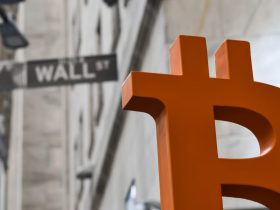Treasury yields held mostly steady on Friday morning as investors assessed September inflation data that offered a mix of both good and bad news.
What’s happening
-
The yield on the 2-year Treasury
BX:TMUBMUSD02Y
was 5.029%, down 1 basis points from 5.039% on Thursday. -
The yield on the 10-year Treasury
BX:TMUBMUSD10Y
was 4.854%, up 1.1 basis points 4.843% on Thursday afternoon. -
The yield on the 30-year Treasury
BX:TMUBMUSD30Y
was 5.023%, up 3.7 basis points from 4.986% late Thursday.
What’s driving markets
Data released on Friday showed that inflation rose faster than expected, based on the Fed’s preferred gauge. The so-called PCE price index rose 0.4% for the second month in a row in September, spurred in part by higher oil prices. The index has risen 3.4% over the past year, unchanged from the prior month.
Over the past year, however, core inflation, which excludes food and energy, fell to 3.7%, the lowest level since June 2021, from 3.8% previously, providing investors and traders with at least a kernel of hope that price rises may continue to ease. The core rate came in at 0.3% for the month, matching the forecast of economists polled by The Wall Street Journal.
Yields had tumbled on Thursday, despite a surprisingly strong 4.9% annual pace of growth for the U.S. economy in the third quarter. While the Fed is mostly expected to take no action next Wednesday, investors will be focused on hints of any possibility of raising rates again in December or January.
Read: Pressure still on Fed as cost of goods and services rises more than expected
What analysts are saying
Friday’s PCE inflation report “provided confirmation that the Federal Reserve’s monetary policy is continuing to reduce inflation over time, albeit slowly,” said Brian Pietrangelo, senior vice president and managing director of investment strategy for Key Private Bank, citing the core year-over-year rate.
“That said, in our view, the economy maintains decent momentum but is showing potential signs of slowing for 2024,” Pietrangelo wrote in an email. “We believe the Federal Reserve is highly likely to pause interest rate hikes next week given the directional slowing of PCE inflation to wait for additional data, including the Employment Situation next Friday, to consider for the December meeting.”
Read the full article here













Leave a Reply